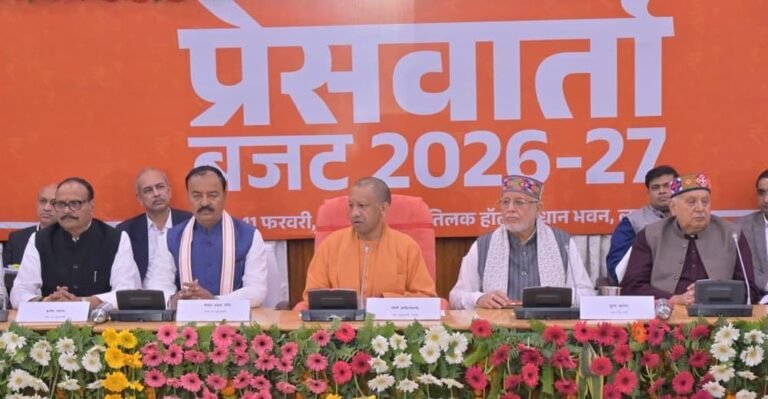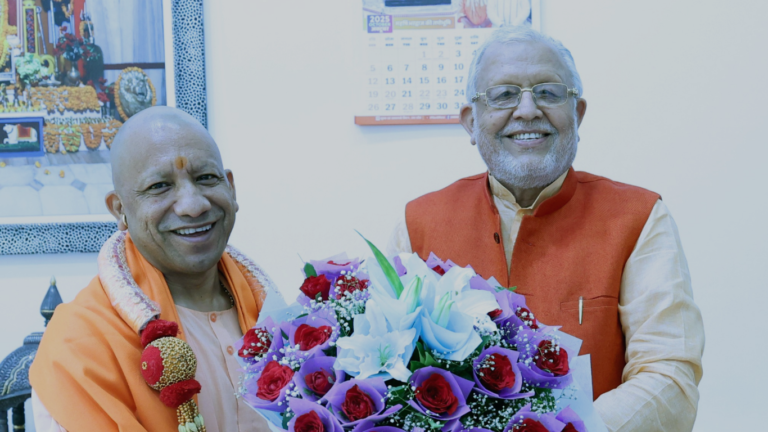
Bijnor, Uttar Pradesh – A shocking case has emerged from Bijnor’s Chandpur town, where police have arrested Arif Ansari, a gas stove repairman accused of being the mastermind of a love jihad gang. The arrest, made on July 24, 2025, followed a police investigation triggered by a passport verification process. Authorities allege that Ansari targeted a Hindu woman, coerced her into conversion, and planned to send her to Dubai. This case has sparked outrage and heated discussions in the area. Here’s what we know so far, based on local reports and police statements.
What is the Case?
The incident came to light when police visited a Hindu woman’s home for routine passport verification. The woman, a D.El.Ed student, had applied for a passport under the name “Jiya Arif,” which raised suspicions. Her brother, Sandeep Kaushik, filed a complaint, alleging that Ansari had trapped his sister in a relationship, sexually assaulted her, and blackmailed her using compromising photos and videos. According to the complaint, Ansari forced her to convert to Islam, created a fake Aadhaar card with a Muslim name, and planned to marry her and send her to Dubai.
Police investigations revealed that Ansari, who runs a gas stove repair shop near Shankar Murti Chowk, had been in contact with the woman for three years. He allegedly used a fake Hindu identity on WhatsApp and email to gain her trust. The woman claimed Ansari threatened to kill her brothers if she spoke out. When police seized Ansari’s phone, they found photos and videos of around 150 other women, raising concerns about a larger network. Authorities are now probing whether Ansari was part of an organized gang involved in coercion, conversion, or human trafficking.
Police Action and Charges
Following Sandeep Kaushik’s complaint, the Chandpur police registered a case against Ansari under serious charges, including rape, forced conversion, forgery, and criminal intimidation. He was arrested and sent to jail. “We are investigating the photos found on his phone and checking for links to any conversion or trafficking networks,” said SP (Rural) Vinay Kumar Singh. The police have also seized Ansari’s call records and bank details to trace potential accomplices or suspicious transactions.
The woman’s family has accused the police of initially ignoring their concerns, claiming they only acted after the passport verification exposed the case. Authorities have denied these allegations, stating they responded promptly once the complaint was filed.
Broader Implications
This case has reignited debates about “love jihad,” a term used to describe attempts by Muslim men to convert Hindu women through fake relationships. While Uttar Pradesh passed an anti-conversion law in 2020, convictions remain low due to challenges in proving coercion. A similar case in Bijnor in 2020 led to an acquittal in May 2025, with the court citing lack of evidence. Citizens are demanding stronger enforcement to protect vulnerable women.
The Bijnor case has raised questions about online deception, with Ansari’s use of a fake Hindu identity highlighting the risks of social media interactions. It also underscores the need for faster police action in such cases, as the victim’s family claims their initial complaints were ignored.
What’s Next?
The police are under pressure to uncover the full extent of Ansari’s activities and any potential accomplices. The woman and her family are seeking justice, while the community braces for further developments. Authorities have appealed for calm, emphasizing that the investigation will be thorough and fair. As the case unfolds, it remains a stark reminder of the complexities surrounding personal relationships, religious identity, and crime in Uttar Pradesh.



